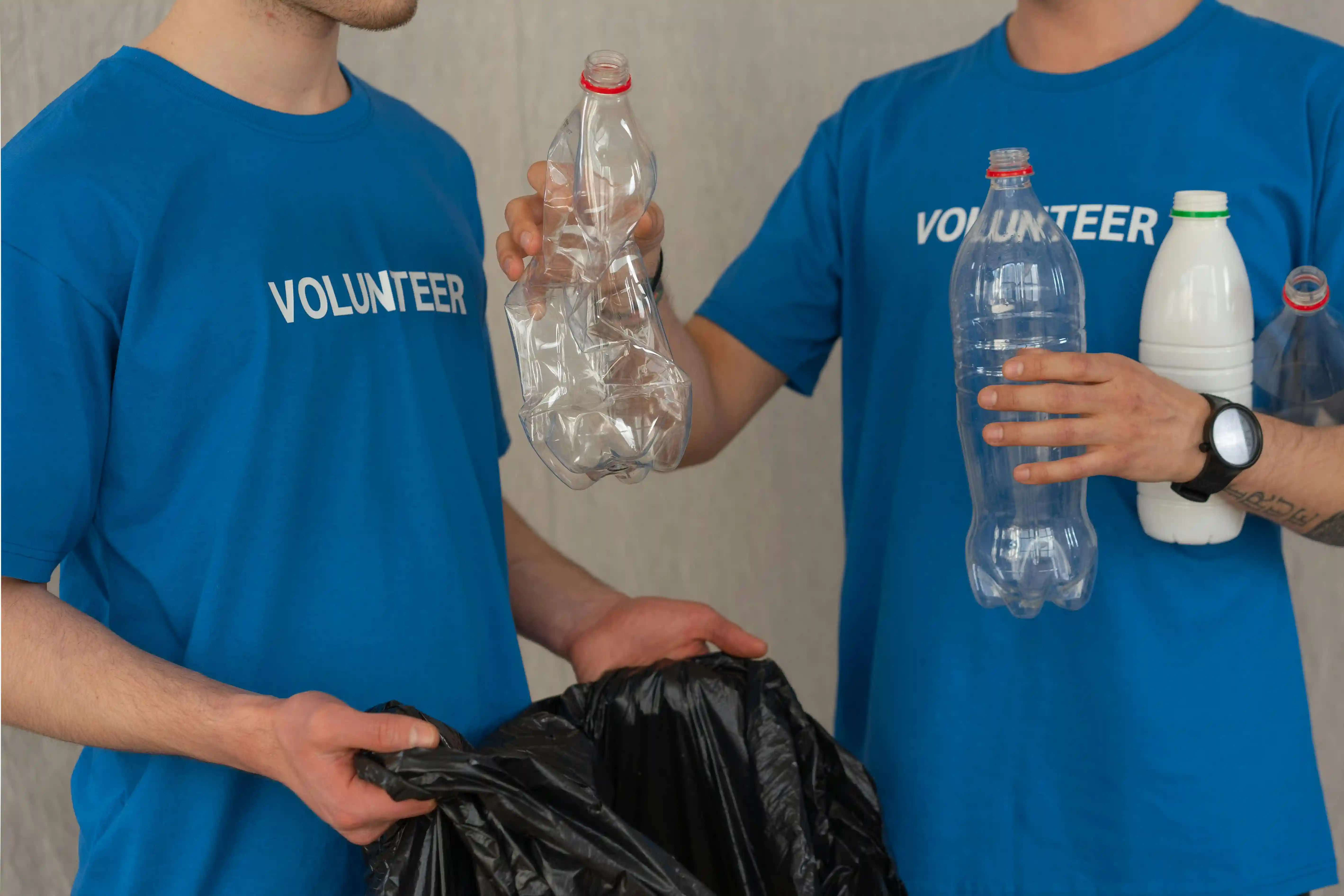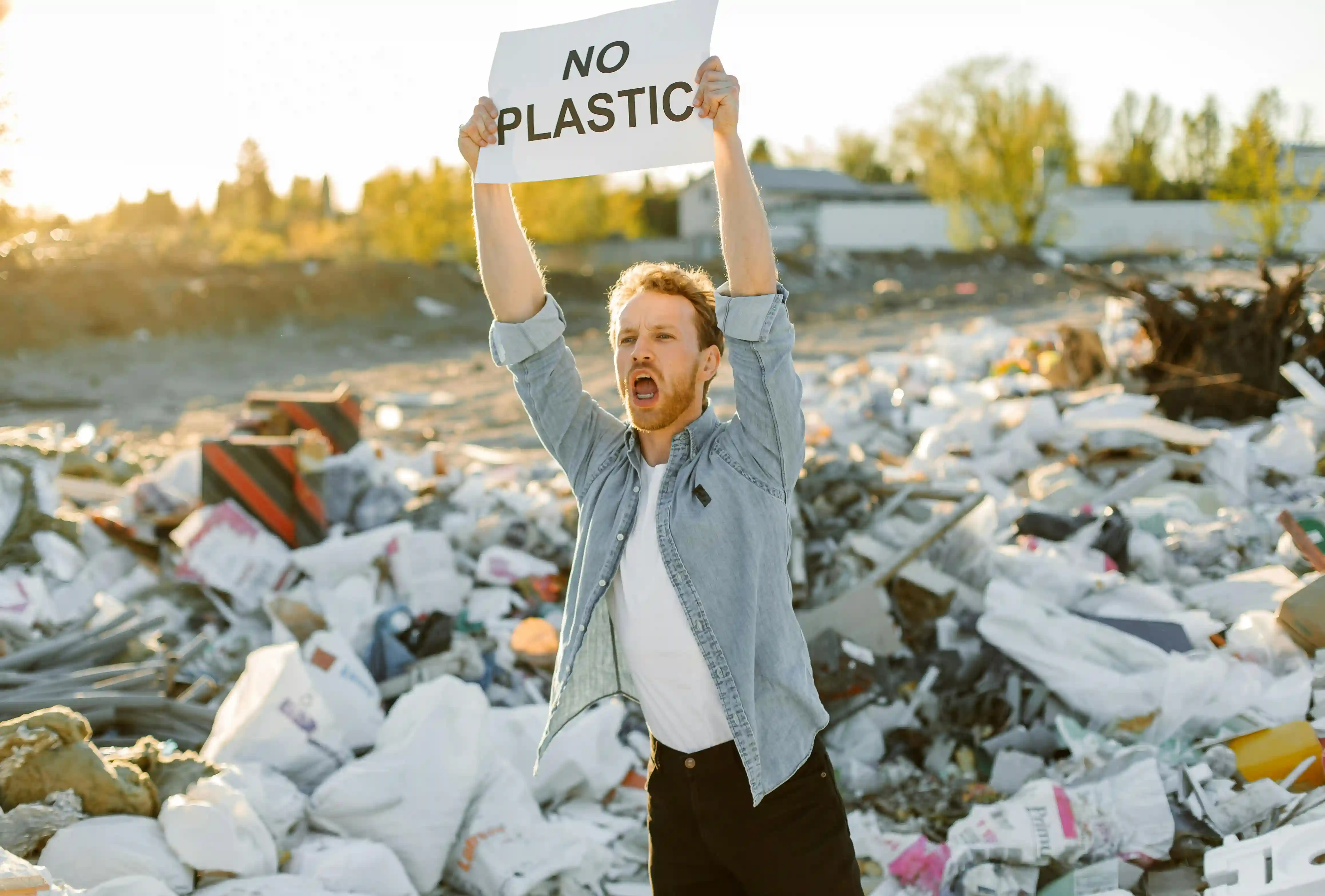New Rules, Big Impact: What Indonesia’s EPR Law Means for Waste Management in Bali (2025 Guide)


Introduction: A Shift in Responsibility
Indonesia is taking bold steps toward sustainable waste solutions, and at the heart of this movement lies Extended Producer Responsibility (EPR). This policy marks a crucial shift: the burden of waste management is no longer just on local governments or individuals, but also on the producers, importers, and retailers who generate the waste in the first place.
In Bali, one of Indonesia’s most visited destinations, the waste crisis is impossible to ignore. Overflowing landfills, plastic-choked rivers, and coastal pollution have pushed local communities and government bodies to act. Yet with its global reputation and eco-conscious community, Bali has also become a testing ground for innovative solutions in waste management in Bali.
Tourism plays a double-edged role here. It fuels the local economy but also contributes heavily to plastic and packaging waste. That’s why the government is tightening regulations, especially through EPR, and placing greater accountability on business owners, including foreign investors with PT PMAs.
This article explores what the new EPR policies mean for your business, what compliance looks like in practice, and how you can become part of the solution while protecting your brand and bottom line in Bali’s evolving regulatory landscape around waste management in Bali.
What Is Indonesia’s EPR Law?
Indonesia’s commitment to sustainable development and waste reduction is enshrined in Ministry of Environment and Forestry Regulation No. 75/2019 (PermenLHK No. 75/2019), which introduced Extended Producer Responsibility (EPR) as a formal component of the country’s waste strategy. This regulation mandates that producers, whether they manufacture, import, or sell products, must also take responsibility for the waste their products generate after use.
Under this law, businesses involved in packaging-heavy sectors such as food and beverage, household goods, electronics, and personal care are now required to develop and report on waste reduction plans. This includes foreign-owned companies (PT PMAs) operating in Bali that fall under the defined categories.
EPR in Indonesia requires companies to implement concrete actions, such as:
- Designing packaging that is easier to recycle or reuse,
- Providing collection infrastructure,
- Supporting recycling systems,
- Partnering with local waste handlers or waste banks.
For those involved in waste management in Bali, the implications are significant. Bali, as both a tourism hotspot and sustainability pioneer, is under growing pressure to reduce plastic waste and landfill dependency. The law pushes companies to shift from linear to circular business models, integrating eco-design and post-consumer responsibility as part of their operations.
Whether you're a villa owner importing bottled amenities, or a packaged snack brand entering Bali's market, understanding EPR is no longer optional—it’s part of your compliance roadmap and your brand's contribution to better waste management in Bali.
How EPR Affects PT PMA Businesses
If you run a PT PMA (foreign-owned company) in Bali and deal with consumer goods, understanding your role in waste management in Bali is essential. Indonesia’s EPR law applies to all businesses, local or foreign that manufacture, import, or sell packaged products in the country. This means PT PMAs are legally required to take part in reducing, collecting, and processing post-consumer waste generated by their operations.
Whether you import bottled beverages, sell cosmetics in plastic tubes, or operate a café using single-use plastic cups, you’re part of the waste management in Bali ecosystem. Compliance isn’t just good practice, it’s required.
What You Must Do as a PT PMA:
- Submit EPR Reports: You must report the volume and type of packaging you introduce into the market to Indonesia’s Ministry of Environment.
- Show Recovery Efforts: Outline how you support reuse, collection, or recycling, whether independently or through partnerships with local waste processors or NGOs.
- Pay Fees if Applicable: Depending on your product volume and industry, you may be required to contribute to national waste reduction programs.
For example:
- A café serving iced coffee in disposable plastic cups must track usage and consider switching to biodegradable alternatives or launching a cup-return program.
- An importer of beauty products packaged in plastic needs to document quantities and demonstrate a plan for post-use collection or recycling.
This regulation ensures PT PMAs are not just operating in Bali—but actively contributing to improved waste management in Bali, aligning with local values and national policy.
Key Compliance Obligations Under EPR
Businesses, including PT PMAs have clear and non-negotiable responsibilities under Indonesia’s Extended Producer Responsibility (EPR) law. These obligations are designed to reduce the environmental impact of consumer waste and improve the overall system of waste management in Bali and across the country.
- Submit a Waste Reduction Roadmap (Rencana Pengurangan Sampah)
Every company must create and submit a multi-year plan outlining how it will reduce, reuse, and recycle its product packaging. This document is reviewed by the Ministry of Environment and Forestry and is central to your compliance strategy. - Design for Recycling or Reuse
Product and packaging design should now prioritize sustainability. Companies are encouraged (and sometimes required) to use materials that are recyclable, compostable, or refillable. This proactive step supports circular economy goals and eases the burden on waste management in Bali. - Create Take-Back or Drop-Off Programs
Producers and importers must provide options for consumers to return used packaging or products. This could involve setting up collection points or collaborating with Bali-based waste banks or eco-hubs. - Proper Labeling
All packaging must include clear information on whether the material is recyclable or compostable. This helps educate consumers and streamlines community participation in waste management in Bali. - Annual Reporting
Each year, your business must report packaging use, recovery targets, and progress to the Ministry. This accountability helps the government track national waste targets and improves transparency. - Partner with Waste Vendors or NGOs
Companies can collaborate with certified local vendors or non-profits to fulfill their collection and recycling obligations, an approach already embraced by many active players in waste management in Bali.
By following these steps, your business doesn’t just stay compliant—it becomes part of the solution for sustainable waste management in Bali.
Penalties for Non-Compliance
Non-compliance with Indonesia’s EPR (Extended Producer Responsibility) law comes with serious consequences—especially for PT PMAs operating in regions with heightened environmental scrutiny like Bali. The government, along with local communities, is becoming increasingly vigilant about corporate accountability in waste management in Bali.
Businesses that fail to submit their waste reduction roadmap, ignore reporting obligations, or contribute to excessive packaging waste may face:
- Warning Letters and Administrative Fines
Initial violations typically trigger formal notices from the Ministry of Environment and Forestry, followed by escalating fines if unaddressed. - Public Blacklisting
Companies that repeatedly fail to comply may be publicly listed on government sites—damaging reputation and investor confidence. - Immigration or Licensing Risks
Foreign-owned businesses could face complications with KITAS, company permits (NIB), or BPOM licensing due to environmental negligence. - Community Backlash
In Bali, where community harmony is vital, a company seen as polluting may face local banjar opposition, protests, or even informal boycotts. - Permit Revocation
At the most serious level, businesses can lose their right to operate for failing to comply with laws related to waste management in Bali.
Staying proactive and compliant isn’t just about avoiding penalties—it’s about earning trust in a community that values sustainability.
How to Start Complying as a Foreign Business Owner
Foreign business owners operating in Bali cannot afford to ignore Indonesia’s Extended Producer Responsibility (EPR) mandates. Compliance isn’t just about ticking boxes—it’s about contributing to the long-term vision of sustainable waste management in Bali. Here’s how to begin:
1. Audit Your Waste Footprint
Start by reviewing all packaging materials, product waste, and operational by-products. Identify what can be reduced, reused, or recycled.
2. Hire a Compliance Consultant
Engaging local legal or environmental consultants can ensure your business understands the latest regulations in waste management in Bali—including required documentation, timelines, and thresholds.
3. Collaborate with Local Recycling NGOs
Organizations like ecoBali Recycling and Merah Putih Hijau offer collection points, recycling education, and community engagement. Partnering with them enhances your company’s environmental footprint and builds local goodwill.
4. Outsource Reporting and Documentation
If you're unsure about submitting EPR reports to the Ministry of Environment, outsource it to an agency or consultant who understands the technical requirements. This reduces the risk of accidental non-compliance while keeping your focus on business operations.
5. Integrate with Your CSR Strategy
Align your waste management efforts with broader corporate social responsibility (CSR) goals. A proactive waste management in Bali approach not only ensures regulatory compliance but also strengthens your brand’s local reputation.
Whether you run a beach café, retail outlet, or import business, embracing these steps will future-proof your operations. In Bali, where environmental awareness is part of the cultural fabric, taking accountability for your business’s waste is more than legal—it’s expected.
Opportunities: How EPR Can Actually Help Your Brand
While many foreign businesses initially view EPR compliance as a burden, it can actually be a powerful opportunity to elevate your brand—especially in a destination as eco-aware as Bali.
Implementing responsible waste management in Bali shows that your business cares about the island’s future, not just short-term profit. This builds trust with local communities, customers, and government regulators. In today’s conscious consumer landscape, tourists and residents alike are more likely to support businesses that show environmental accountability.
Adopting EPR practices may also qualify your business for green certifications and eco-labels. These certifications are increasingly used as decision-making tools by eco-conscious travelers and global investors seeking sustainable ventures.
Furthermore, redesigning your packaging for sustainability often leads to long-term cost savings. Lightweight, recyclable, or reusable materials reduce both disposal costs and shipping weight.
In short, EPR compliance is more than a legal necessity—it’s a brand-building tool. When you align your operations with progressive waste management in Bali initiatives, you position your company as part of the solution, not the problem.
Conclusion: Responsible Business = Resilient Business
The rise of Extended Producer Responsibility is reshaping how companies approach waste management in Bali. No longer just an operational concern, sustainability has become a legal, social, and strategic imperative—especially for PT PMA businesses serving both local and global markets.
Waiting until penalties, protests, or license issues arise is no longer an option. The time to act is now. Proactively addressing your waste output, reporting obligations, and recycling efforts will not only protect your business from compliance risks—it will also enhance your reputation as a responsible, future-ready brand.
In the evolving business landscape of Bali, integrating sustainable practices isn’t just good ethics—it’s smart strategy. Embrace waste management in Bali as a core part of your business model, and you’ll build something that’s not only profitable but also deeply resilient and respected.
Source:
FAQ

.png)









